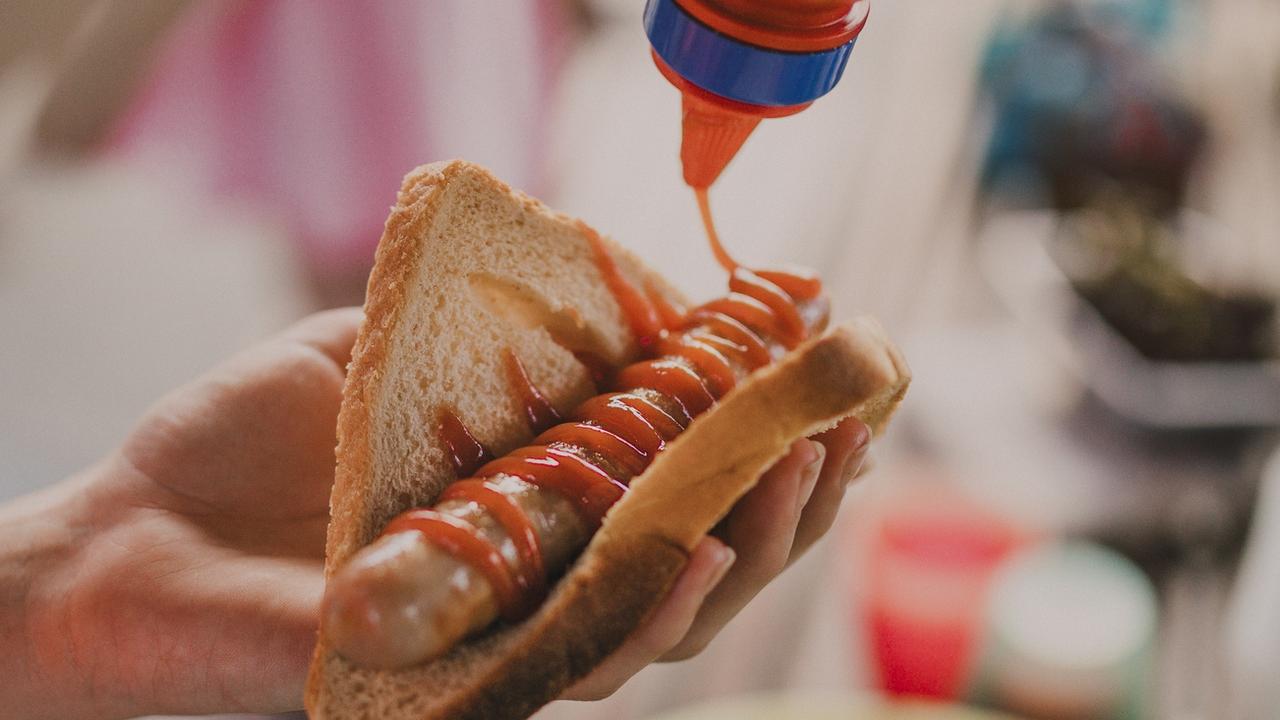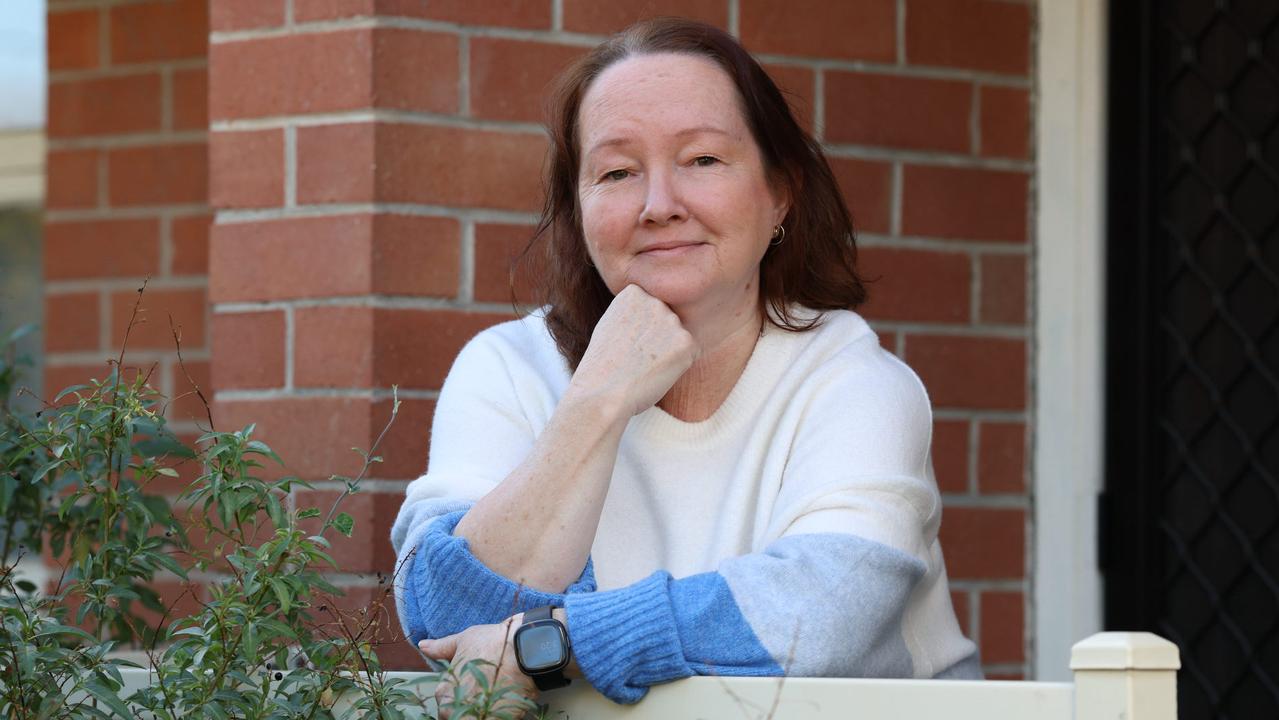Adelaide Fringe/Festival: Six shows not to miss
Sure, there’s a global pandemic, but that hasn’t stopped Adelaide swinging into festival mode with this weekend’s Fringe opening. Here’s six shows not to miss over the next few weeks.
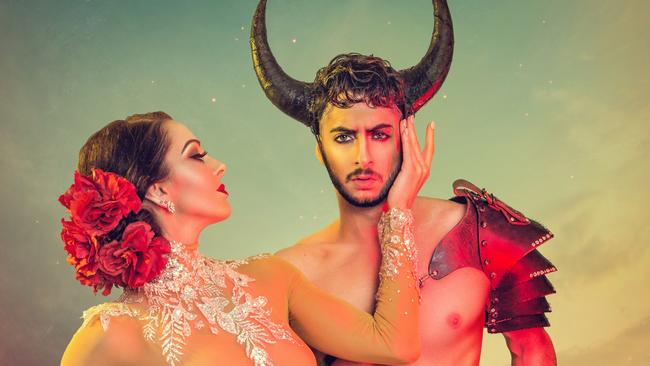
SA Weekend
Don't miss out on the headlines from SA Weekend. Followed categories will be added to My News.
Hundreds of performers from across Australia, and even overseas, will be on show during Adelaide’s annual Fringe and Festival season, which starts this weekend.
Adelaide Fringe, which started last night and runs until March 21, will feature nearly 900 events and 21,000 individual performances. Adelaide Festival runs from Friday to March 14 and will feature more than 70 events in theatre, music, opera, dance, film, food and visual arts.
Needless to say, there’ll be plenty of variety on offer over the next few weeks, so here’s six of the best, in no particular order, to consider getting along to...
1. MATADOR
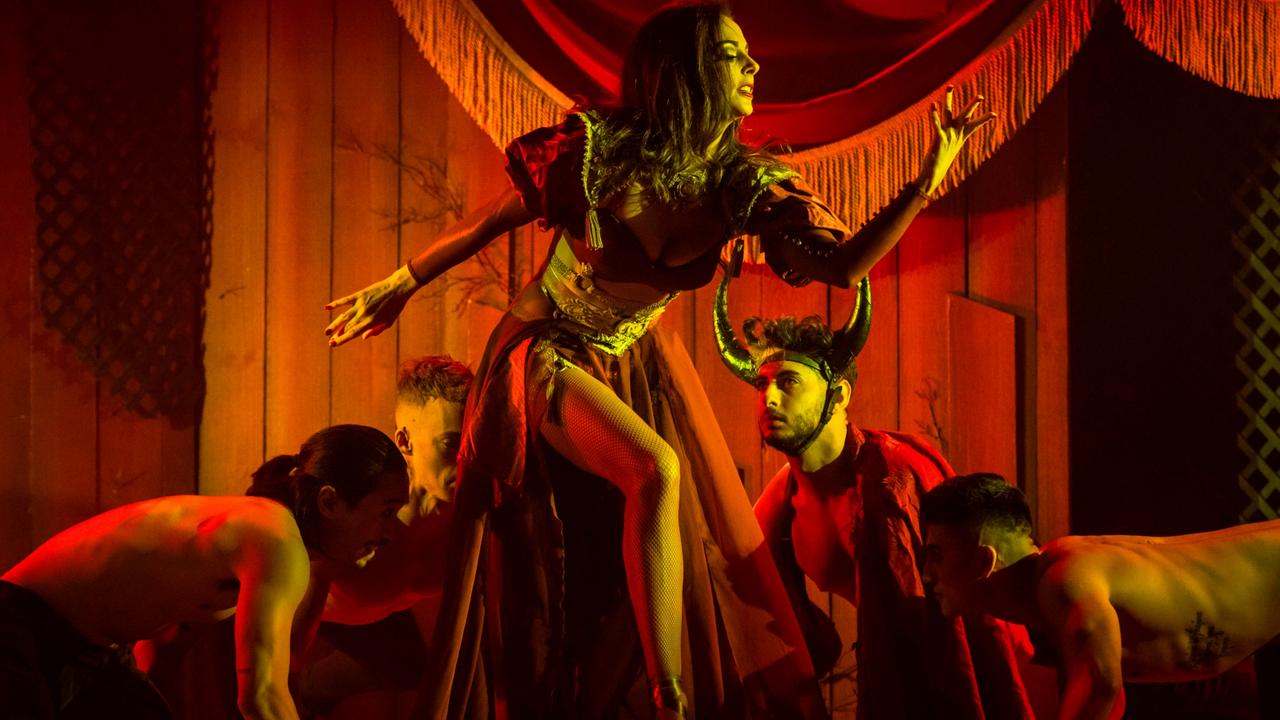
By Patrick McDonald
BULLFIGHTS and burlesque may seem worlds apart as forms of entertainment but Matador is set to challenge perceptions of both arts at this month’s Adelaide Fringe.
At the show’s heart is an almost symbiotic relationship that develops between matador and bull.
“It’s one of the things that we always have to clarify,” says the show’s creative director Bass Fam.
“People ask, are you glamorising something as inhumane as the bullfights? Not at all – the point in what we’re doing is a metaphor about how destructive, but then how passionate and intense love can sometimes be.
“The bull is a representation of the carnal, really raw instincts of humankind. Without giving too much away, it’s about seeing that break down in front of you on stage, so it almost reveals the human underneath.”
Like a bull charging a red rag, the cast and crew of Matador had to make a frantic dash from their Melbourne base to Brisbane, where it had a season earlier this month, when the threat of another COVID lockdown reared its head in Victoria.
“We moved 22 people overnight, Fam says.
“Within 24 hours, we changed everyone’s flights, found accommodation, got everyone booked in, organised transfers, did everything – organised a truck, put the sets in the truck, got my best friend to jump into the truck, drive to Brisbane and meet us here.
“It’s a great team, so it has actually brought us all really close together.”
A new 80-minute incarnation of the show, subtitled Sabor de Amor (A Taste of Love), will premiere at the Adelaide Fringe.
The lead roles of the matador and the bull are each shared by two alternating performers.
While bullfighting is traditionally male dominated, there have been women matadors dating back to its origins in the 1700s, and the part will be played in this production by Kelly Byrne and Pip Keltie.
“The role of the matador is a very hard role to fill. It’s a dance-based role, very technical – she has to do ballet en pointe, she does pole-dancing, she does aerial apparatus, she does Latin,” says Fam.
“One of the things we do in the show is challenge the gender constructs and we challenge the norms.
“We challenge the idea of who is in charge, who is the dominant one, who is chasing and who is being chased.
“Even the bull sometimes comes out wearing a matador jacket, and there are sections in the show where the matador comes in and she is raging like a bull. So the duality of their characters is one of the main things that we play on.”
More than a burlesque show, Matador is a fully staged production with ensemble dance and physical theatre routines, peppered with acrobatic elements.
“A reviewer described the show as ‘a modern-day ballet, with burlesque and circus’,’ Fam says.
“That’s what sets Matador apart … whilst it’s not a literal story, it’s a thematic story. It still has a lot of heart in it, it challenges a lot of social issues, it explores a lot of things – from gender and sexuality and identity to discovering who you are.
“It’s got some really beautiful moments of reflection in it, but it’s all in a sexy, young, vivacious, full-of-life package.”
Fam says Matador explores “the different faces of love” through seven relationships.
“You’ve got one couple that are the sunshine … the consistent, happy love. You’ve got the friendship couple, then the fiery Latino couple that are almost volatile.
“One of the couples explores the rawness of sex, with no boundaries – they explore the darker side, the more S&M side. We tackle a lot of issues … whether it be pain and heartbreak, we don’t hold back.”
Egyptian born and British schooled, Fam moved with his family to Australia in 2000. He studied communication design and did honours in advertising, before setting up his own creative agency. That led to promotions for nightclubs and dance parties, then design work for casino shows in Las Vegas.
“I got into the world of theatre and started realising it’s so much fun coming up with a vision and then doing everything – overseeing the costume design, the set design,” he says.
His favourite holiday spots include Barcelona and Dubai, and he’s been able to incorporate his passion for Spanish culture and its Arab influences – which echo his own heritage – in Matador.
“The link between that is the gypsies and the nomads and the Bedouins, which is what we called them around Egypt. They all have the same vibe which blends into the flamenco culture.”
Matador is also a personal story which incorporates elements of Fam’s own life experience.
“It was four years ago that I was sitting at a tapas bar and drinking sangria (in Barcelona) and writing the first framework of Matador while I was on holidays. From there, I started to think of past events that had happened in my life with past relationships, on my own journey of self-discovery.
“Matador started off as just an open letter to myself, to my ex-lovers, to people that have broken my heart and to people that have made me who I am today. It’s grown to be a show that people have connected with in their own individual way.”
Matador is in The Octagon at Gluttony, February 19 to March 21. Book at adelaidefringe.com.au
2 EGG
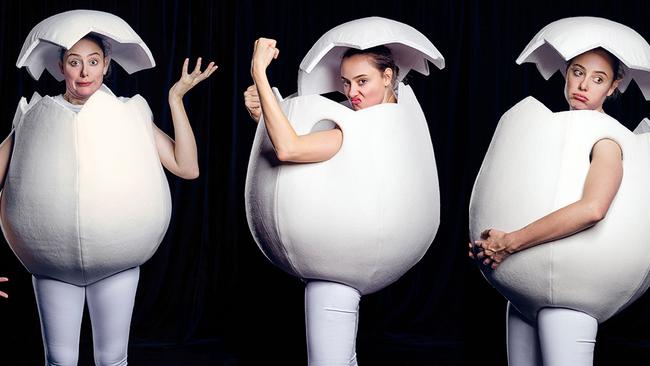
By Patrick McDonald
CRACKS started appearing in dancer Erin Fowler’s hard-boiled attitude to motherhood when an advertisement about fertility inadvertently hatched an idea for her new show, EGG.
At age 32 and single, Fowler was confronted when a commercial popped up on her Facebook page suggesting she should freeze her own ovum for possible in-vitro fertilisation in the future.
“As a female, there is that thought that pops into your head every now and then,” she says. “It’s true, I was on Facebook one day during COVID and an ad popped up, saying ‘Have you thought about freezing your eggs?’ – and if so, you should do so by 32 or 33.”
Fowler says that opportunities and freedoms for women have expanded in many ways, particularly in their professional careers, “but physiologically, female fertility is still pretty much limited to about 40”.
“For me, travel – being able to explore – and having an ability to be relatively free in my life has always been really of value. Suddenly, with COVID taking all of that away … it gave me time to think, well, what is my life?
“Being home with family a lot more … definitely triggered some reflection.”
EGG is not trying to impose answers on the audience, but rather invites them along for a comical exploration of thoughts and experiences.
“I’m completely undecided and a mess when it comes to what I’m doing with my life, and I’m really hoping the audience can help me,” laughs Fowler.
“We have a cheeky, life-sized egg who is from the 1980s, so there’s an 80s soundtrack that weaves through. It combines dance, clowning, physical theatre … and some bagpipes maybe make an appearance in the show as I explore my Celtic ancestry. You know: Looking forward you must also look back.
“The intention is that provides a lighthearted look at these ideas and questions, but then also packs a bit of a punch in a few key moments.”
The dancer “always just assumed” she would have children at some stage.
“Now that I’m 32 and single, it’s an interesting thing to be considering,” she says.
“I’ve been talking to a lot of artist-mothers in the making of this work. Women’s bodies do have to go through that process of pregnancy and the physical care afterwards – it does impact your career trajectory. There’s a fear of sounding a bit like an ambitious, empathy-less, feminist female, but it’s a real consideration.”
Fowler also decided to break a few eggs by introducing more elements of physical theatre and comedy into EGG, working with clowning teacher and actor Hew Parham – best known for his Berlin Cabaret character Rudi – as the show’s director.
“We actually did his baby clown training at the end of last year, which is such an incredible discipline,” Fowler says.
“A lot of my family would say I was already a clown, but now I’m officially a clown.
“So much of it is about being really authentic and real on the stage, which is actually what I’ve been exploring a little bit more through movement.
“Sometimes, with these more delicate or sensitive topics, humour is one of the best ways to explore them. Dressing up in an egg costume is certainly a strong foundation to start from,” she laughs.
“It’s also a great costume for social distancing.”
Fowler co-founded multidisciplinary arts organisation The Mill with visual artist Amber Cronin in 2012, before handing over the artistic director reins three years ago.
“What’s really lovely is that the new team have now completely taken over … and Amber and I just use the spaces as artists, which feels like a really lovely full circle.”
She now has her own company, Erin Fowler Movement, which incorporates some of the holistic work she also does with women.
For physical performers, such as dancers, pregnancy can mean a long time away from the stage. The demands of dance training and diet can also impact negatively on women’s fertility.
“I’ve struggled with various cycle things early on, and I was a healthy young dancer,” Fowler says.
“With the natural body types that dance and ballet in particular attract … lots of people really struggle with that.
“With all of my work, I like to just start a conversation, like you’re having a cup of tea with a friend. I’m not an artist who tries to shove my strongly formed opinions down your throat – because I am still working on what those are.
“The guilt we place on motherhood, it’s a really sensitive, delicate topic. I really feel like opening conversations up around that, even before motherhood.”
While motherhood is often discussed, the process of deciding whether or how to go down that path is less frequently talked about, says Fowler, who will also do a podcast called The Waiting Womb to accompany the show.
“There’s this funny thing where, as a woman, you are so worried about contraception and you don’t want to get pregnant for most of your life … then suddenly that switches.
“To be really honest, it’s a very personal work of me exploring this decision. I’ve been thinking about it a lot as a result of the show.
“I don’t think there’s ever one right decision – it’s more about working out how you can be OK with not knowing, which speaks to things beyond having a child … our legacy and our purpose in life.”
EGG, Black Box Theatres @ Adelaide Botanic Garden, February 19 to March 21. Book at adelaidefringe.com.au
3. THE REICHSTAG IS BURNING
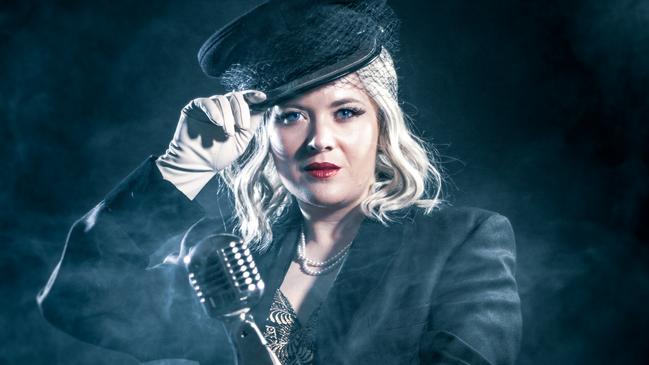
By Patrick McDonald
AS the world finds itself in crisis, a national emergency is declared. Civil liberties are restricted. Borders and trade routes slam shut. Theatres and nightclubs – usually havens for artists and intellectuals – are forced to close their doors.
If this sounds familiar, then it also rang alarm bells for Adelaide actor and theatre creator Joanne Hartstone as she found herself having to return to her fallback job, which in turn led to her new Fringe cabaret show The Reichstag is Burning.
“Last year was very different for me… my tours were cancelled and, in order to make ends meet, I went to my backup career as a high school teacher,” she says.
Hartstone was offered a semester contract to teach history – specifically the period covering Germany immediately after World War I.
“It included the Treaty of Versailles… and how events in the next 10 years led to the fascist regime of the Nazi party being able to take a hold,” she says. “This period of time absolutely fascinated me… as a counterpoint to what was happening in America last year, and to be honest for the past four years, since Trump was in power.
“It really challenged me. I thought, why have we not learnt these lessons from the past? What are the triggers that make this gap in which fascism can take hold? There’s the control of media and the idea of fake news and false information – propaganda and media were among the things I noticed where there was a direct correlation.”
Living and social conditions, particularly for the poor to middle class, also created a fertile ground for sowing the seeds of racism by making certain cultural groups the scapegoats for economic hardship.
Ironically, that period in German history also gave rise to the Weimar Kabarett, a more dark and decadent form of entertainment focused on political satire and gallows humour, which continues to inspire and inform contemporary cabaret today.
“It allowed people to express themselves in ways that they hadn’t been able to before … people loved the freedom of it. This parallels what’s been happening recently in the world with COVID, that we haven’t been able to gather and meet and have more of these theatrical or entertainment experiences. One of the things that The Reichstag is Burning highlights is that when Hitler and the Nazi Party grabbed power, even in the early days of January 1933, immediately they started a purge on culture. They wanted to control what art was allowed to be performed, to be seen, to be heard.”
Hartstone, whose past theatre works include The Girl Who Jumped Off the Hollywood Sign and That Daring Australian Girl (about Adelaide suffragist Muriel Matters) has this time created the character of Iris London, an amalgam of real people from the Weimar era.
“She is more like the spirit of cabaret… although, I suppose technically it’s more like a historical cabaret play,” Hartstone says.
“I am a fan of the Brechtian theatrical device of historification, where the present is brought into greater focus by using events from the past. It is a bit of a step away from more monologue-based performance. This one is embracing music a lot more, and the story is being told through musical juxtapositions – using songs from the time, but also modern songs reimagined.”
With its cabaret setting, this year’s program at Black Box – and the adjacent Botanic Gardens amphitheatre off Hackney Road - includes more music, dance, digital and children’s events as well as theatre.
“Unfortunately, this year we can’t do a lot of audience interaction – the rules that theatres have are that performers can’t go into audience spaces,” Hartstone says.
“Finding a way to tow that line so that it’s safe for everybody but to also deliver this new genre is a challenge.”
The Reichstag is Burning, Black Box Theatres, February 19 to March 14.
4. HELLO GOOD THANKS: BETTER OUT THAN IN,
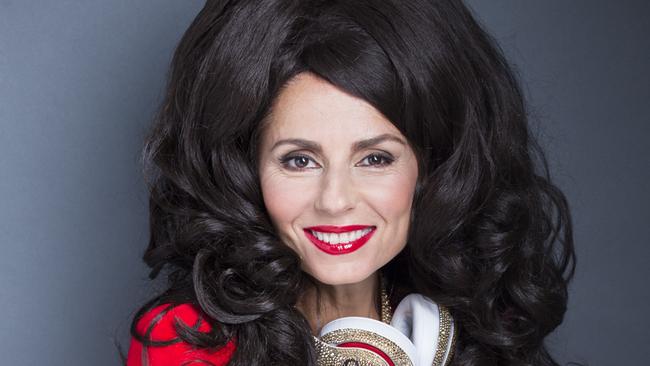
By Lisa Woolford
IT’S almost inconceivable but, in her 30-year plus career, Greek goddess Effie Stephanides has performed at Adelaide Fringe just once. And that was last year. “I hate myself that a million other people knew the atmosphere and experience of doing a show there and I was unbelievably late to that party,” Effie says.
“And, hello, it is now my favourite thing to do and I’ve made a commitment that, from now on, I’m going back every year. Like Mecca, you know.”
Effie’s back at the Garden of Unearthly Delights to debut her new one-woman show Hello Good Thanks: Better Out Than In – an insight into the ins and outs of the apocalyptic year that was 2020. The mask’s off for 2021 and after much self-reflection (and what a reflection, she tells us) she’s back to toast the new abnormal.
“It’s about what we’ve dealt with and lived through – it’s a type of coming out I suppose,” Effie, the alter-ego of actress and comedian Mary Coustas, explains. “You know, coming out of COVID, coming out of the cultural closet, the sexual closet. A lot of people didn’t come out of COVID well – but for a lot of people the coin dropped in terms of what is important, and who they really are without the freedoms we take for granted.” The self-confessed “telepathetic” was blindsided by the pandemic despite her usual gift for predicting the future.
“I take great pride in having such special gifts – I mean, I’m obviously visually gifted, that goes without saying – but I have these other gifts that can’t be seen by the human eye,” Effie shares. “I have an inner knowing – like I can see things before they happen.
“I saw the GFC, the cryptocurrency thing … I even saw Kanye’s nervous breakdown, but I didn’t see COVID coming.”
Happily married to Shane Bradley Cooper (“Doctor Shane Bradley Cooper,” Effie adds. “It’s not important to some people but it is to me.”), she enjoyed the 112-day strict Melbourne lockdown, if only for the chance to get to know her plastic surgeon husband better. Especially “biologically”. But the starlet thrives on being the centre of attention and getting touchy feely with her fans, so confesses it still took its toll on her mental health.
“I swung like a pendulum – I’m a very social being and pretty accustomed to doing what I like, when I like and suddenly, you know, there was nothing,” Effie says.
The former hairdresser’s renowned for her immaculately coiffured mane and amply-applied make-up, you’d think she’d continue her extensive two-hours a morning routine. Turns out, no – like so many of us she let herself go, even gaining a few of the dreaded COVID kilograms on her usually petite frame.
“I’d like to say that I kept it up – but I felt like I was like a trapped animal and I started to behave like an animal,” Effie admits. “I completely lost my discipline and sense of what was normal, suddenly abnormal was normal. I hit that stockpile of food like it was nobody’s business, you know, I got that done in a long weekend.
“But then I started looking at myself and not recognising what I was seeing. I even contemplated writing a COVID memoir called Eat Pray Eat.”
She assures Adelaide audiences that she’s got her vanity, and body, back. Helped in part by the prodigious talents of her almost seven-year-old – immaculately conceived – daughter Aphrodite, or Aphie for short. While home schooling was absolute torture for the pair, Effie did discover Aphie is set to follow in her extremely high-heeled footsteps.
“Oh my God – I don’t mean to talk myself down, but I didn’t finish high school,” she says. “I went to an academy for hairdressing which is code for I dropped out in Year 10. I’m street smart – not scholastic.
“(Homeschooling) was like the blind leading the blind. I mean I don’t want to be politically incorrect and call my daughter thick, but she is a bit on the dumb, dumb side.
“But she’s dexterous, she’s got good hands. She’s a follicular Einstein like me. So she was able to complete what would normally be a three-year apprenticeship in a very turbocharged six months.
“From what I have been told, and I haven’t had a look at the Guinness Book of Records, but apparently she is the youngest person that qualified as a hairdresser in the Southern Hemisphere.”
Hello Good Thanks: Better Out Than In, The Spiegeltent, The Garden of Unearthly Delights, March 18-20.
5. DIRT
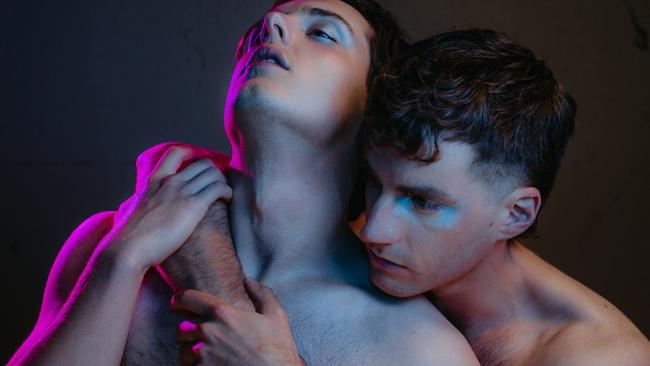
By Patrick McDonald
ANTI-GAY purges which have included the abduction, imprisonment and alleged murder of hundreds of people in Chechnya motivated theatre maker Patrick Livesey and his actor partner Wil King to commission their new play, DIRT.
“No-one we spoke to had any awareness of what was happening,” says Livesey. “It was this really fringe issue, but we felt it quite deeply.
“The more we got into it, the more we realised how unique the political and cultural landscape of Chechnya is, and that it’s probably not a story that we are capable to doing justice to, which is why we situated the story in Moscow.
“We speak to and reference what is going on in Chechnya, but do it from a Russian and an Australian perspective.”
DIRT is set in a Moscow bar, where King’s Australian character encounters Livesey’s local resident. Things take a dark turn when neither man turns out to be who they claim.
“These two people, that have such vastly different experiences and perspectives on the world, collide with each other on this day in Moscow. Culture shocks and clashes come out of it, but also the early buds of a potential relationship,” Livesey says.
Livesey grew up in Adelaide but moved to Melbourne in 2014 to study drama at the Victorian College of the Arts, and has been working between the two cities ever since.
He met King – who stars in the new ABC millennial comedy series Why Are You Like This – in 2017, after an audition for the play Strangers in Between.
“It was Wil’s breakout role and he was amazing in it … but it was the role that got away for me,” Livesey laughs.
However, he didn’t let King get away so easily.
Livesey had first become concerned about queer rights in Russia during the Sochi Winter Olympics in 2014.
“I remember seeing a lot of videos on Facebook of men, in particular, being baited and then filmed and humiliated.”
In 2018, King and Livesey became aware of the anti-gay purges in Chechnya, which had begun the year before.
“What’s great about being a maker and being an artist is that we are able to hold space – even if it’s just for an hour in a theatre – to bring people’s attention to this thing,” Livesey says.
“It’s not only to tell them about it, but to tell a story about it, which really connects people quite quickly to the core of the issue, and has a real capacity to change people.”
While Livesey both wrote and performed in his previous Fringe plays The Boy, George and Gone Girls, this time he handed the brief to emerging playwright Angus Cameron.
“For this one, we wanted to approach someone who had a real wealth of experience as a writer. Angus was someone I’d worked with before.
“Angus was the person we knew would be able to take on this subject matter and craft a story that honoured that, but was also really fast, really engaging and really exciting for an audience.
“As a writer, he is always peppering it with a lot of humour to disarm the audience … but the play is definitely a dramatic thriller. Whatever the audience is expecting, I know that it is going to be shattered – and shattered many times throughout the play.”
The play is directed by Bronwen Coleman, who honed her craft in New York where she acted alongside Phillip Seymour-Hoffman in the film Capote and was an ensemble member of Hoffman’s LAByrinth Theatre Company.
“It’s kind of crazy to be led by her in a rehearsal room,” Livesey says.
He adds that Coleman is “trying to evoke a very distinct atmosphere”.
“It’s an authenticity and a richness of the emotional life, and the vividness of the world. What we’re dealing with can be quite harrowing subject matter, but then the script is very much based in a relationship between these two characters.”
Livesey says it can be challenging for the actors to leave their real relationship out of what takes place in certain scenes, while they can also draw upon it in other instances.
“It’s a bit up and down. There’s some moments when we really do have to resist the urge to be familiar with each other … then at other times, the trust we have with each other means that we can actually go a lot further.”
DIRT, Holden Street Theatres, February 18 to March 21. Book at adelaidefringe.com.au
6. THE BOY WHO TALKED TO DOGS
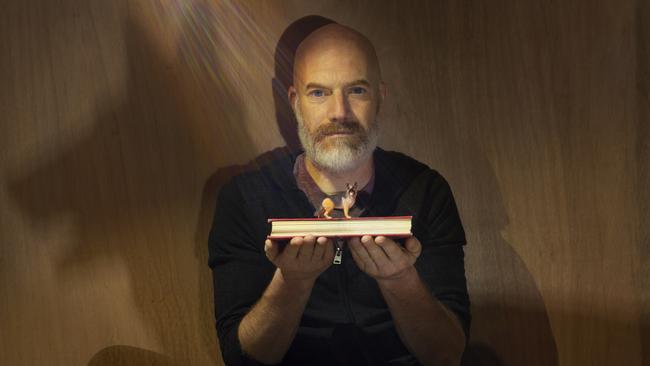
By Patrick McDonald
SOMETHING in the shadows moves and snarls. Soon, other shadowy figures join the pack. But what may sound scary turns into an inspiring story of survival and, ultimately, personal triumph in Adelaide family theatre company Slingsby’s new international collaboration, The Boy Who Talked to Dogs.
Based on the “Dog Man” Martin McKenna’s best-selling book, the work – which will premiere at this year’s Adelaide Festival – is a co-production with State Theatre Company and three diversely talented Irish artists: playwright Amy Conroy, actor Bryan Burroughs and songwriter Lisa O’Neill.
In true Slingsby style, it also brings together a collage of theatre, shadow puppetry, animation and live music. Slingsby artistic director Andy Packer was inspired by a radio interview he heard with author McKenna, who subsequently took part in the first workshop for the theatrical adaptation.
“Martin McKenna is, of course, one of the most charming individuals – he just is such a great storyteller,” Packer says.
“His story is definitely of trials and tribulations, an experience that unfortunately quite a number of people go through – a violent childhood.
“The next bit of Martin’s story is that he is an identical triplet – which is sort of miraculous as well. Then there’s the thing of him running away from home and living for three years with dogs.”
Aside from that remarkable story, what appealed to Packer was how McKenna, while justifiably assigning blame on the adults in his life who should have done better, “took responsibility for his own role in things”. “He kind of acknowledges that he was very difficult,” he says.
McKenna move to Australia about 30 years ago and now lives in Nimbin, NSW, with his own family.
“He has published three books – and continues to have people bring him troublesome dogs,” laughs Packer.
Since 2014, Slingsby has been touring its previous works in Ireland, and has established strong relationships with that country’s theatre community.
“It’s important that we think about who gets to tell whose stories. This is a childhood that took place in Ireland, so it really made sense to have an Irish playwright,” Packer says.
“I’d seen Amy’s work at the Dublin Theatre Festival. Then I fell in love with Lisa O’Neill, this incredible singer-songwriter: a fierce, powerful woman from Cavan who doesn’t need to put on working class pretence – it’s the genuine thing,” Packer says.
Development workshops were held in Adelaide with Conroy and O’Neill – whose haunting Rock the Machine won best original song at the 2019 Dublin Folk Awards – then in Dublin with Burroughs, before the COVID pandemic. Burroughs, who previously performed his self-written show Beowulf: The Blockbuster at the 2016 Adelaide Fringe, was recommended to Packer, who hadn’t seen that work.
“I was here for three weeks of the festivals, and had an amazing time,” Burroughs recalls. “We had an incredible week of development … the character was new to me, the story was new to me, and the style of Andy’s work really suited the way I like to work.”
At Slingsby’s headquarters in a hall behind a cafe at Parkside – where the brightly painted proscenium arch stage has been converted into an office – movable wooden screens and circular tables are used to block out the action.
“One way of working is to sit around a table with the script and analyse and talk,” Burroughs says.
“In this work, it seems to be: Up you get and try, and explore, and fail and fail and fail – but somewhere in there you find the way. It’s just pure creation.”
Before rehearsals began in January, Burroughs spent two weeks in hotel isolation in Perth, during which time he and Packer talked through much of the script online.
“It’s a miracle I’m here at all, and it’s a miracle this is going on,” the actor says. Burroughs also ushered in the New Year alone in his quarantine hotel room.
“And yet, it was joyous for that. There was a real sense of going on an adventure … and Slingsby’s tag of ‘Journey in Wonder’ has been in my mind. And I saw loads of fireworks from my window,” he laughs.
Burroughs says the character of young Marty instantly reminded him of his nephew Jack, who is autistic.
“Martin is not autistic, but there is something spectrum-wise about where he walks and how he engages with the world.
“Whatever way the synapses in his brain are wired, he does his utmost to behave and be good and connect and fit in with everyone – but just the way he is made, he abrades up against you, he upsets you or disturbs you. Other folk tend to react around him in a negative way, and he often can’t seem to figure out why that is.
“So when he meets with a pack of dogs – whose synapses are firing similarly to his – something in their way of engaging settles him, calms him and makes him go: This is what I am like. I am much more dog than I am human.”
Burroughs came to acting for reasons that echo those experienced by McKenna.
“Life was difficult, growing up was hard. My life story is not dissimilar to Martin’s in certain respects,” he says.
“Doing the school play equipped me to deal with real life … just by dint of the fact that it had a structure of form, you could incorporate and interrogate problems and issues characters were having.”
Packer says that Slingsby continues to make work for what it envisages as an “intergenerational” audience.
“We look to those epic stories to help us understand our own psychology and our own challenges in life,” he says. “To see stories of people transcending those challenges gives us hope.”
The Boy Who Talked to Dogs, Thomas Edmonds Opera Studio, February 26 to March 14. Book at adelaidefestival.com.au



